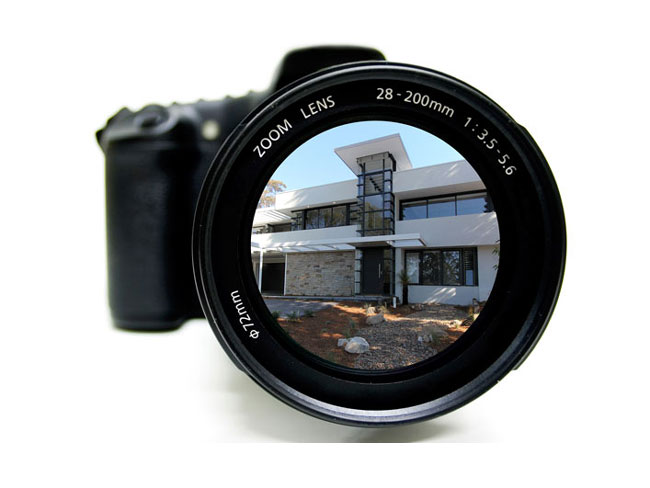
by George Astudillo | Feb 8, 2020 | Management Systems, Planning, Presentation, Repairs and Maintenance, Tenant
You should be inspecting your property twice a year.
During these inspections, you are looking for repair and maintenance issues and ensuring the tenant is looking after the property.
An accumulation of dirt, together with a cluttered and untidy lifestyle, will accelerate wear and tear. This means appliances may break down more often and will need replacing sooner. This also applies to carpets and painting – resulting in higher costs.
With a new tenant, schedule the first appointment by the end of the third month. This will give the tenant a little time to settle in and you can see how they keep house.
Give the relevant notice, which in NSW is 14 days in writing, and arrange a mutually acceptable time. Your relationship with the tenant is important, so try hard to fit in with his routine; most tenants aren’t too fussed about allowing you access and in some cases they may not wish to attend.
Keep this inspection informal and quick. If you have chosen your tenant well, the property should look great, but if you see that the property is being poorly looked after, you are well within your rights to request the property be brought up to standard. It is a condition of the lease to keep the property reasonably clean, meaning that the tenant should not be causing damage or excessive wear and tear. You should also expect it to be tidy enough that all areas are accessible for regular cleaning. Give the tenant seven days to clean the property to a reasonable standard and arrange to return for another inspection.
If the property is still not appropriately clean, discuss the situation with the tenant. At this stage, take photos as a record, as you may need them later. Then, if all else fails, you can treat this situation as a breach of the agreement and give the tenant a termination notice.
If the property is clean and you’re happy with the presentation, diarise another inspection as permissible in your state. The second inspection should take place six months later or about three months before the tenancy agreement expires. This time the inspection should be more thorough – again looking at the presentation of the property and at any maintenance and repairs that may be needed.
If the lease is approaching or past the end of the fixed term, you should also use this time to consider any rental increases.
When sending out the “Notice of Inspection” attach a simple form that the tenant can fill in recording matters requiring attention or repair. Usually, the tenant is aware of most of the issues with the property and it is a great help to note them down.
Tenants will undoubtedly at some stage ask for alterations to be made to your property, for more information on how to deal with these requests see our previous blog “Has Your Tenant Asked to Make Changes to Your Property”.
This is also a good time to update the tenant’s contact details.
Once at the property, start inside and work your way through every room with the following checklist to guide you:
- Does the woodwork need repainting or varnishing?
- Is general painting required?
- Presence of mould, often found in bathrooms and laundries but can be particularly dangerous if found in bedrooms.
- Loose electrical fixtures such as power points, light switches, light fittings.
- Check for worn carpet areas and any stains
- Check locks with your set of keys
- Are kitchen cupboards still aligning and closing correctly?
- Check bench tops
- Check appliances – cook top, oven and exhaust fan etc
- Smoke alarms should be in working order, there should be one on each level of the home.
- Check outside – look at gutters and downpipes
- Check the gardens and pool
- Check overhanging branches- Check for any pruning or cut backs that are due and in the case of council approval make a note to lodge an application.
- Pool fences and gates in compliance, check the perimeter to ensure there are no unsteady railings or backyard items against the fence.
- Lawns should be cut regularly, and gardens maintained neatly in accordance with the lease
How involved are you in the management of your property? See our blog “Managing Your Investment Property.”
About Us
George Astudillo is the founder of Property Quarters, an agency that values communication and great relationships with its landlords.
George now has more than 30 years in real estate, including 15 years as the owner of a national real estate franchise. He’s also an accredited auctioneer and is the author of “The Landlord Mindset”, a book with his best tips to help landlords look after their investments. His book has been quoted in the SMH, The Huffington Post and The Age.
As the founder of Property Quarters, George takes great care in looking after his landlord’s investments. Having seen it all and worked with may landlords and tenants, he’s a strong mediator and negotiator and knows how to navigate through property legislation.
George is trusted by his landlords to advise on the financial management of their investments. He’s put in place proven processes to ensure each property he looks after is managed effectively to retain its value, quality tenants and rental income.
If you’re looking for a property manager who thinks like a landlord and whose business is built on tested processes, contact us by clicking HERE.
Copyright © 2022, www.propertyquarters.com.au
Copyright © 2016, www.propertyquarters.com.au

by George Astudillo | Jan 6, 2020 | Financial, Management Systems, Tenant
The Sydney rental market can be very tight sometimes, with vacancy rates usually under 2% in most suburbs, especially at this time of year.
It’s not unusual to have over thirty groups of people visit an open for inspection and then compete with 10- 15 other applicants.
So how can you give yourself the best chance of winning against such odds?
1. Tenant Application
Make sure you fill it in accurately and completely. If a property manager has to chase anything up they may decide it’s easier to look at the next application.
2. Documentation
Make sure you have all the necessary documentation. You need to demonstrate to the property manager that you can afford the property, that you are reliable and that you will take care of the property.
You need to provide pay slips, bank statements and possibly tax returns if you are self employed that prove you can afford the rent without undue strain. Remember that an average rental of $500 per week is a commitment to pay over $26,000 over the next twelve months.
From your past and present landlords/agents obtain an up to date tenant ledger.
Written character references are also important. They show that people think of you as honest and reliable, and this will help you stand out as a worthy tenant.
Proof of identification is required in the form of passport, drivers licence, Medicare card etc. For the 100 point checklist see our previous blog “Proof of Identity”.
3. Are your referees ready?
If your application makes the shortlist, the property manager will call your past and present employer and landlord/agent, as well as any other referees you have nominated. It’s important to let your referees know they will be receiving a phone call and that you would appreciate any messages be responded to quickly. Any delays here will open the door to other applicants whose information can be verified quickly. Also, check with your employer or HR department to see if they need written permission from you to enable them to discuss your employment details with a property manager.
4. Are you ready?
Don’t wait until you see the perfect property before you start to complete an application form. Do it now, be ready, so when you do find your ideal property you can act quickly. Think of creating a tenant resume, much like an employment resume, that you can keep updating. There are several sites that offer on line applications such as 1Form and tApp.
To a property manager this type of tenant is a clear winner, because the easier you make it for a property manager the better the chances are of them selecting you as their tenant.
There are three crucial qualities landlords look for in a tenant, find out in our blog “3 Keys to Choosing the Right Tenant”
About Us
George Astudillo is the founder of Property Quarters, an agency that values communication and great relationships with its landlords.
George now has more than 30 years in real estate, including 15 years as the owner of a national real estate franchise. He’s also an accredited auctioneer and is the author of “The Landlord Mindset”, a book with his best tips to help landlords look after their investments. His book has been quoted in the SMH, The Huffington Post and The Age.
As the founder of Property Quarters, George takes great care in looking after his landlord’s investments. Having seen it all and worked with may landlords and tenants, he’s a strong mediator and negotiator and knows how to navigate through property legislation.
George is trusted by his landlords to advise on the financial management of their investments. He’s put in place proven processes to ensure each property he looks after is managed effectively to retain its value, quality tenants and rental income.
Copyright © 2022, www.propertyquarters.com.au

by George Astudillo | Dec 16, 2019 | Financial, Inspiration, Planning, Repairs and Maintenance
With 2020 fast approaching now is the time to be thinking of the goals you’d like to achieve for the management of your investment property, to ensure that your investment will continue to provide a sustainable, consistent and trouble free income for years to come.
An investment property requires advanced planning and follow through. Creating a list of New Year’s resolutions before the start of the new year can ensure that you have confidence, a systemised approach and the right mindset to grow your asset.
Here is a checklist for you to get started when preparing for a successful 2020.
1. Insurance
Landlord insurance is your investment property safety net. You should be asking yourself ‘Do I have the appropriate cover?’ and ‘Am I making the most out of what I pay for?’. There are also different types of cover depending on whether you have an agent or manage the property yourself. Take the time to review what you have. For more on Landlord Insurance see our previous blog ‘Landlord Insurance- Manage Your Risk’.
2. Smoke Alarms
As a landlord you are legally required to have met the obligations for the installation and maintenance of smoke alarms in your property. Many smoke alarm companies will offer unlimited servicing programs to provide peace of mind knowing your tenants and property are protected. Make sure all your bases are covered. New reforms to the tenancies act coming next year will mean you, as the landlord, will be fully responsible to make sure smoke alarms are operational.
3. Mortgage review
Keep your investment tailored to your budget and working in your best interests by regularly reviewing your home loan. If you haven’t reviewed your current interest rate in the last few years, you may be paying too much interest. It’s easy to let the finer details of your mortgage fall by the wayside but by keeping an eye on the market you may just come across a great deal. Sign up to a comparison website or ask a mortgage broker for advice.
4. Rent review
The new reforms to legislation will mean rent increases may only be implemented once in a twelve month period. Schedule your rent review date a few months in advance to coincide with a routine inspection. At “Property Quarters” we conduct regular rent reviews and keep an eye on market changes to ensure your property is keeping pace. See our blog ‘Rent Reviews- 5 points to Consider’.
5. Property Maintenance
One of the most nagging of New Year’s Resolutions, but just as equally important, is appraising your property for repairs and updating. Unexpected repairs can happen at any time, don’t be caught out unprepared. Create a plan and put aside funds. Most repairs and maintenance are tax deductible, check out our Section on Depreciation for a quick overview of investment depreciation.
6. It’s not who you know it’s what you know!
Knowledge is power so make it a priority to become as shrewd as possible in property investment. Your carefully planned nest egg is critical to your future. It can make a real difference between struggling to make ends meet and the joy of a secure retirement- so make your investment work to its absolute potential! You can do this by brushing up on your knowledge. Our website ‘www.propertyquarters.com.au’ is packed with free information to get your landlord mindset on the right track.
7. Review of your managing agent
“Choosing a Property Manager is possibly the most important part of owning an investment property. You are relying on a professional to guide you towards financial independence; make sure you are in the right hands.”–George Astudillo.
Your managing agent should be in regular contact with you, efficient with planning, have extensive market and industry knowledge and above all they need to look after your best interests at all times. If you have any doubts about how your property is being looked after it might be time to make a change.
About Us
George Astudillo is the founder of Property Quarters, an agency that values communication and great relationships with its landlords.
George now has more than 30 years in real estate, including 15 years as the owner of a national real estate franchise. He’s also an accredited auctioneer and is the author of “The Landlord Mindset”, a book with his best tips to help landlords look after their investments. His book has been quoted in the SMH, The Huffington Post and The Age.
As the founder of Property Quarters, George takes great care in looking after his landlord’s investments. Having seen it all and worked with may landlords and tenants, he’s a strong mediator and negotiator and knows how to navigate through property legislation.
George is trusted by his landlords to advise on the financial management of their investments. He’s put in place proven processes to ensure each property he looks after is managed effectively to retain its value, quality tenants and rental income.

by George Astudillo | Nov 8, 2019 | Marketing, Planning, Presentation, Technology
If a picture paints a thousand words, what do you want your photos to say about your property?
Bad real estate photography is everywhere, in fact there are blogs and Facebook pages that are dedicated to the subject. Although these are funny, we don’t want potential tenants laughing at our property.
So, what do we need to ‘focus on’ to get it right?
1. Less is more
Just because there are rooms in the house doesn’t mean you need to take a photo of all of them. Some are just too difficult to capture. A photo of a corner only says the room is too small. If the result is less than flattering, leave it out.
2. Keep it real
Nothing upsets potential tenants more than unrealistic photos. If you intend to use a view shot, make sure it is easily seen from the property. If you need binoculars or need to lean out of the bathroom window to see the same view, you will lose credibility as a landlord. And the same goes for using props to hide faults, either fix the problem or don’t take a photo of it.
3. Quality equipment
Many of the poor photos on the internet come from cheap cameras or even iphones. To take good quality photos you need good quality equipment. The bare minimum would be a good digital camera, wide angle lens for interiors, a decent add-on flash unit and a stable tripod.
4. Stay straight
When using a wide angle lens, it easy to end up with distorted images. Make sure you are holding the camera straight and that it is level. Tripods which include a spirit level are very handy.
5. Attention to detail
Look around and take an inventory of what the camera will see and record. Check what may need to be removed from the scene. In kitchens particularly, you may need to declutter by removing tea towels, dish washing detergents, cleaning brushes etc. Also check that blinds are all level and open for the best light. Bathrooms should be entirely clear.
6. Timing
Natural light is very sought after in a property. Choose a time of day that works for the property. This is particularly important for the exterior photos as you want the sun behind the camera and shining on the property. Photos taken just before dusk can be difficult to time but can also be very rewarding for the right property.
7. Photoshop
Only process the images to crop and tidy, and remember point two above, keep it real. There are big penalties for misleading consumers, be aware of the restrictions such as removing objects from pictures such as power lines and unsightly electricity boxes. For more information on rules and regulations see The Department of Fair Tradings Advertising Guidelines.
Real estate marketing focuses on images. Potential tenants want to see the main features of the property and want to be impressed. Quality photography together with a well written description can create a vision of a lifestyle that will appeal to the right tenant.
About Us
George Astudillo is the founder of Property Quarters, an agency that values communication and great relationships with its landlords.
George now has more than 30 years in real estate, including 15 years as the owner of a national real estate franchise. He’s also an accredited auctioneer and is the author of “The Landlord Mindset”, a book with his best tips to help landlords look after their investments. His book has been quoted in the SMH, The Huffington Post and The Age.
As the founder of Property Quarters, George takes great care in looking after his landlord’s investments. Having seen it all and worked with may landlords and tenants, he’s a strong mediator and negotiator and knows how to navigate through property legislation.
George is trusted by his landlords to advise on the financial management of their investments. He’s put in place proven processes to ensure each property he looks after is managed effectively to retain its value, quality tenants and rental income.
If you’re looking for a property manager who thinks like a landlord and whose business is built on tested processes, contact us by clicking HERE.
Copyright © 2022, www.propertyquarters.com.au

by George Astudillo | Oct 1, 2019 | Financial, Management Systems, Presentation, Repairs and Maintenance, Tenant
Once you’ve got one, you’ll want to be sure they stay.
(From the article and interview featured in The Huffington Post Australia)
One of the challenges of property investment is being able to find the elusive ‘perfect tenant.’ It’s that ideal tenant that will ensure the financial success of your property, as well as give you peace of mind that they will take great care of your investment.
A good tenant is made up of several factors but perhaps the number one attribute is a person who always pays their rent on time.
Real estate expert and author George Astudillo told The Huffington Post Australia late rental payments is a top frustration for many landlords.
“Late payment leads to frustration and embarrassment as it makes the landlord late in paying expenses, such as a mortgage,” Astudillo said.
“Cleanliness is a major factor; an ideal tenant will take care of the property. Being lazy with household chores will speed up wear and tear. Paint needs to be dust and grime free and carpet will wear out quickly if grit and soiling are allowed to accumulate.”
“A perfect tenant is a co-operative tenant, particularly in the event of a problem. Life is unpredictable, it’s tough enough dealing with challenges without a tenant making things more difficult.”
The trick is to choose wisely when you choose a tenant and don’t take any chances. You might be tempted to take a risk on a tenant who’s willing to pay more money. However, Astudillo said if they turn out to be less than they promise to be, the cost of new carpet, repainting and repairs will quickly absorb the increase and leave you in debt.
“If a property has been vacant for a while there can be a tendency to cut corners. Don’t let the temptation cloud your judgement,” Astudillo said.
“Sometimes a tenant just seems so nice, you want to give them the benefit of the doubt. Remember nice people don’t always make good tenants.”
Once a landlord selects the right tenant, it’s wise to take steps to make sure they stay put. If you’re not careful, your tenant will leave: turn over costs a lot of money, including marketing fees, agents’ fees and possible property damage. See our blog “3 Keys to Choosing the Right Tenant”
While there are multiple reasons why tenants move – and many will be out of your control – there are some simple things you will have control over
“Looking after your tenant and the property they live in makes good business sense. The tenant is your customer, and having a happy customer is always good for business,” Astudillo said.
George Astudillo’s Landlord Checklist
Repairs
Treating repairs too casually or without care is the most common reason for creating distrust and discontent in tenants. Unless the problem is an emergency, they are at the mercy of the owner. Reasonable requests for repairs should happen quickly.
Maintenance
Allowing the property to deteriorate will change the appeal to the tenant. If the property is no longer up to the quality the tenant is prepared to pay for, they will move. Keeping your property looking its best will also mean you can keep the rent within reach of the market.
Rent reviews
Rent increases that are excessive, either too many or too much, will also make a tenant feel taken advantage of. In these situations, the tenant will start looking for better value elsewhere.
Courtesy and Respect
Tenants need to feel respected. Your attitude towards repairs, maintenance and rent reviews, as well as the tenants’ right to privacy, are simple ways to show respect.
About Us
George Astudillo is the founder of Property Quarters, an agency that values communication and great relationships with its landlords.
George now has more than 30 years in real estate, including 15 years as the owner of a national real estate franchise. He’s also an accredited auctioneer and is the author of “The Landlord Mindset”, a book with his best tips to help landlords look after their investments. His book has been quoted in the SMH, The Huffington Post and The Age.
As the founder of Property Quarters, George takes great care in looking after his landlord’s investments. Having seen it all and worked with may landlords and tenants, he’s a strong mediator and negotiator and knows how to navigate through property legislation.
George is trusted by his landlords to advise on the financial management of their investments. He’s put in place proven processes to ensure each property he looks after is managed effectively to retain its value, quality tenants and rental income.
If you’re looking for a property manager who thinks like a landlord and whose business is built on tested processes, contact us by clicking HERE.
Copyright © 2022, www.propertyquarters.com.au






